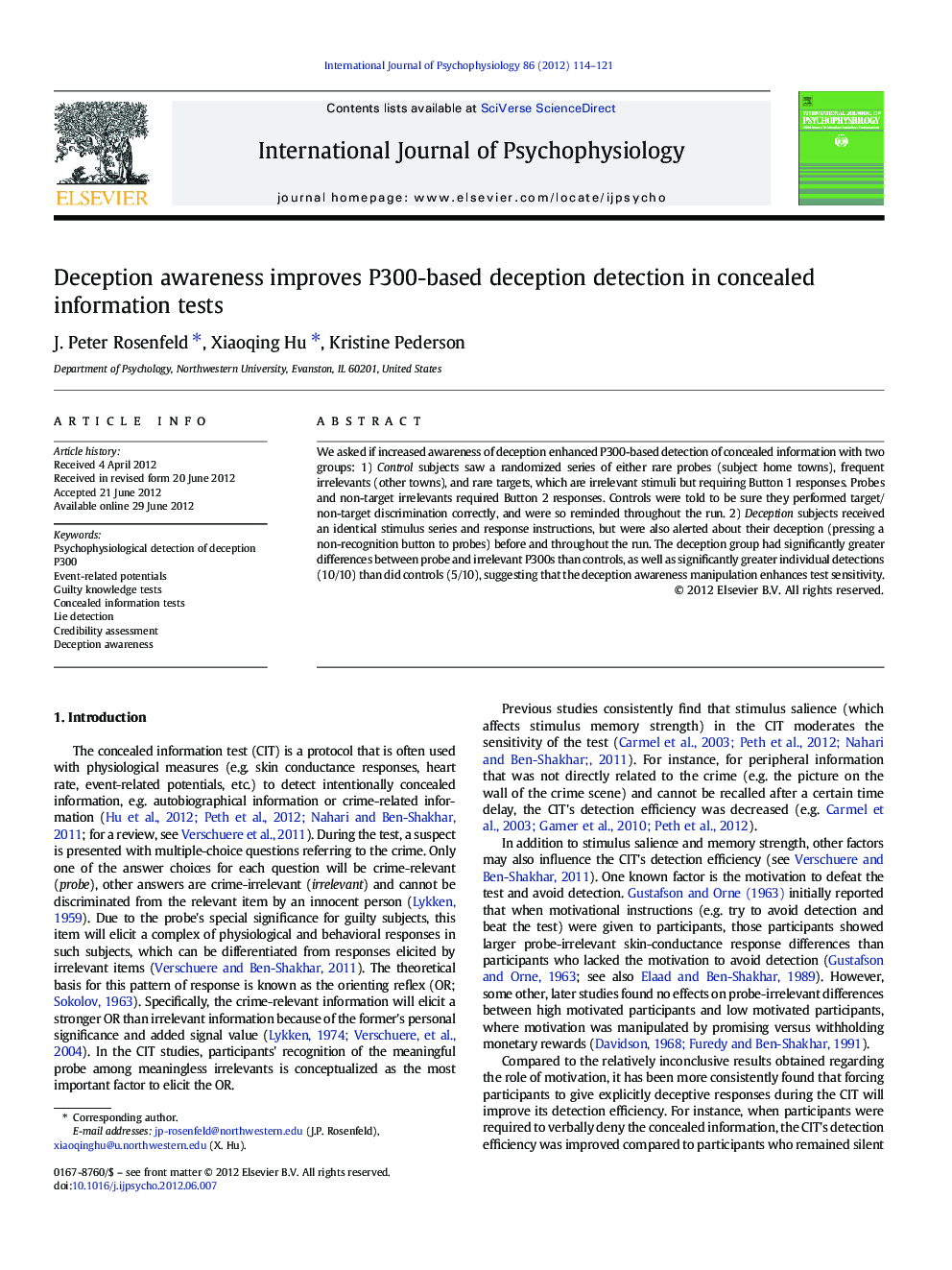| Article ID | Journal | Published Year | Pages | File Type |
|---|---|---|---|---|
| 931236 | International Journal of Psychophysiology | 2012 | 8 Pages |
We asked if increased awareness of deception enhanced P300-based detection of concealed information with two groups: 1) Control subjects saw a randomized series of either rare probes (subject home towns), frequent irrelevants (other towns), and rare targets, which are irrelevant stimuli but requiring Button 1 responses. Probes and non-target irrelevants required Button 2 responses. Controls were told to be sure they performed target/non-target discrimination correctly, and were so reminded throughout the run. 2) Deception subjects received an identical stimulus series and response instructions, but were also alerted about their deception (pressing a non-recognition button to probes) before and throughout the run. The deception group had significantly greater differences between probe and irrelevant P300s than controls, as well as significantly greater individual detections (10/10) than did controls (5/10), suggesting that the deception awareness manipulation enhances test sensitivity.
► We studied the effects of enhancing deception awareness on sensitivity of P300-CIT. ► One “deception” group received feedback during the run regarding deception. ► Another “control” group received feedback during the run regarding button press. ► Increased deception awareness increased the detection of concealed information.
